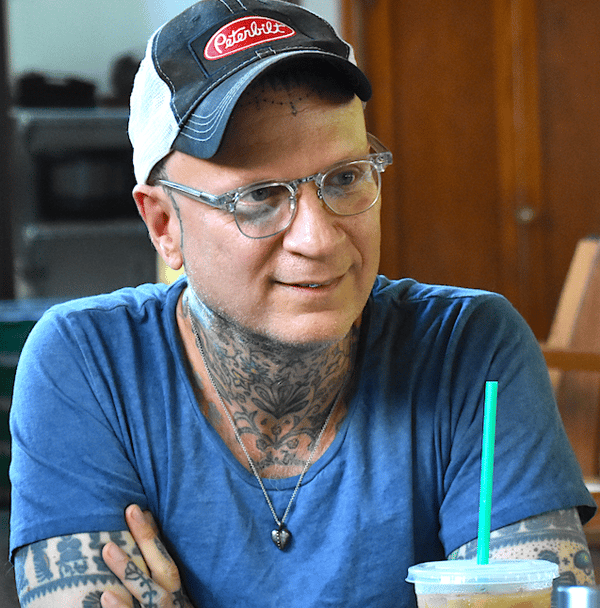The Whys & Hows of Setting Boundaries with Foolish People
Dharmapunx NYC
josh korda
4.8 • 886 Ratings
🗓️ 12 July 2018
⏱️ 64 minutes
🧾️ Download transcript
Summary
Transcript
Click on a timestamp to play from that location
| 0:00.0 | Hello, thanks for listening to this Darma podcast. I hope you consider that in accordance |
| 0:05.3 | with the Buddhist tradition all of my work is a teacher is offered without charge and supported |
| 0:10.2 | entirely by donations only. If you'd like to support this work you'll find a |
| 0:14.1 | paypal button on darmopunks nyc.com. On our website you'll find resources in a |
| 0:20.0 | free sample from my wisdom publications book unsubscribed which is available at |
| 0:24.8 | bookstores and online retail outlets. Thanks for listening. Quite an admirer of the writer Robert Wright who's an evolutionary psychologist who also writes a lot on Buddhism and he wrote a piece called Mindful Resistance is the key to defeating Trump. |
| 0:48.3 | In it, he says outrage gets in the way of empathy for Trump's supporters. I don't mean empathy in the usual sense of feeling |
| 0:56.8 | their pain that psychologists call emotional empathy. I mean cognitive empathy, understanding how the world looks from their point of view. |
| 1:07.0 | A better understanding will help he suggests in perhaps not only somehow deflating the conflict but also bring about an end to the kind of despotic thinking that is currently in place. |
| 1:35.0 | So a Buddhist peace fellowship did an article around the same time |
| 1:40.0 | about different approaches to resistance and they wrote positively about Muslim activists in St. Louis who handed out donuts at a Trump rally and the goal was for them to encourage lively conversation, |
| 2:00.7 | mutual understanding. The only problem was they spent much of the time while they were handing |
| 2:07.8 | out tonics being inflicted with all kinds of racial abuse. |
| 2:22.0 | So, but these pieces sort of present this idea that I've been familiar with because I've been familiar with because I've been going to Buddhist centers and a Buddhist |
| 2:27.2 | for very sense in my team so it's been well over 40 years and this idea certainly stems from the fact that America is a Judeo-Christian country and we like to present the Buddha in the framework that's most familiar |
| 2:51.6 | which to us is the sort of forbearing, turn the other cheek model of Jesus. |
| 3:00.6 | And we like to present the Buddha as essentially someone who very calmly was willing to listen tolerantly to all kinds of different views and engage in very mindful debate and it's understandable that we would like to have this image because it's the most familiar to us. |
| 3:34.0 | In the West we love the idea of the nonviolent, completely forebearing |
| 3:46.0 | gentle martyr. |
| 3:59.9 | and so we, you know, it's understandable that we want the Buddha to be one more example thereof. The problem is that it's really not so simple. In fact, one of the interesting constant themes |
| 4:12.1 | and motifs I found in the Polycanin over my years of study of it and preparing |
| 4:17.0 | to become a Buddhist teacher was that, one, the Buddha did not ever, out of his way, seek to have any kind of discussion with people whose views he knew were completely different from his own. |
... |
Please login to see the full transcript.
Disclaimer: The podcast and artwork embedded on this page are from josh korda, and are the property of its owner and not affiliated with or endorsed by Tapesearch.
Generated transcripts are the property of josh korda and are distributed freely under the Fair Use doctrine. Transcripts generated by Tapesearch are not guaranteed to be accurate.
Copyright © Tapesearch 2025.

